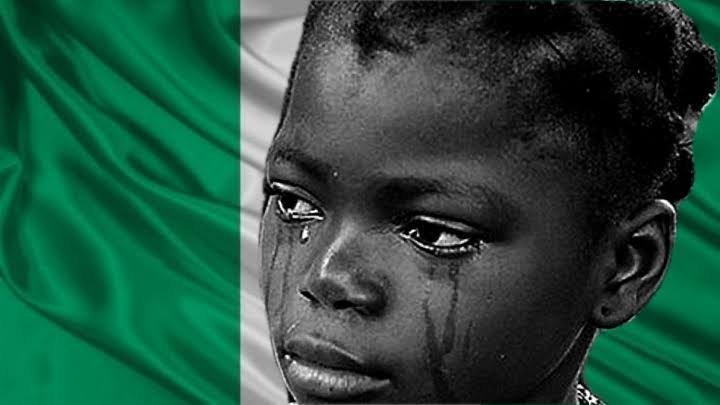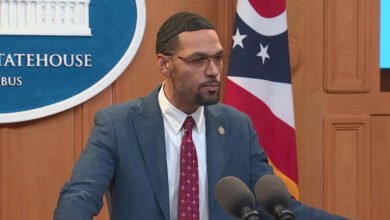Injustice in the System: The Failure to Protect Nigeria’s Children in the Justice System

Introduction
In an Abuja courtroom, a disturbing scene unfolded as five young defendants collapsed due to reported hunger and neglect, highlighting severe lapses in Nigeria’s treatment of children within its justice system. Among 118 defendants charged with treason for allegedly participating in the #EndBadGovernance protests, these minors endured conditions that starkly violate child protection laws, including Nigeria’s Child Rights Act (CRA) of 2003. This incident brings to light the urgent need for reforms to protect children’s rights, especially in legal proceedings where their welfare, dignity, and future are at stake.
Legal Provisions for Trials Involving Children in Nigeria
The Nigerian legal system provides specific safeguards for children in conflict with the law, guided by the Child Rights Act (CRA) of 2003, the Nigerian Constitution, and international instruments like the UN Convention on the Rights of the Child (UNCRC). These laws emphasize humane treatment, rehabilitation, and reintegration, seeking to protect children from harsh punitive measures. Below are the key provisions:
- Definition of a Child and Minimum Age of Criminal Responsibility:
- The CRA defines a child as anyone under 18 years of age. Under Section 30 of the Nigerian Constitution, the minimum age of criminal responsibility is set at 7 years. This means that children under this age cannot be legally prosecuted, as they are presumed incapable of criminal intent.
- Specialized Juvenile Justice System:
- Children between the ages of 7 and 18 are generally processed within the juvenile justice system, which operates separately from adult criminal proceedings. Juvenile or Family Courts were established under the CRA to ensure that trials involving children focus on rehabilitation and welfare rather than punishment. These courts are required to conduct proceedings privately, protecting the child’s identity and ensuring a less stigmatizing process.
- Prohibition of Harsh Punishment:
- The CRA prohibits capital punishment, life imprisonment, or any form of cruel and degrading treatment for children. In cases of serious offenses, children are directed toward corrective measures, such as supervised rehabilitation, emphasizing counseling and community support.
- Right to Humane Treatment in Detention:
- According to the CRA, children must not be detained with adults, a measure intended to protect them from potential abuse, neglect, and negative influences. Children in conflict with the law are entitled to adequate nutrition, medical care, and a safe environment that respects their dignity and well-being.
- Alternative Sentencing and Diversion Programs:
- The CRA encourages diversion programs as alternatives to detention. These include community service, educational programs, and family-based interventions, focusing on reintegration rather than traditional punishment. The goal is to address underlying factors contributing to the child’s conflict with the law and to help them re-enter society positively.
- Right to Legal Representation and Fair Trial:
- The CRA mandates that children be provided with legal representation, a fundamental right to ensure fair trial standards. Additionally, the Legal Aid Council of Nigeria provides free legal services to children who cannot afford a lawyer, ensuring that all minors have access to defense and are treated fairly in court.
Despite these protections, the treatment of these children reflects a profound failure to uphold Nigeria’s own child protection laws. Some of the most concerning aspects of their treatment include:
- Prolonged Detention Without Access to Basic Needs: Reports from defense lawyers indicate that these minors were held in police custody for weeks without adequate food or medical care. This neglect resulted in severe malnutrition, leading to multiple defendants collapsing in court due to hunger and ill health. Such treatment contradicts the CRA’s provisions, which stipulate that detained children must receive appropriate care and treatment.
- Lack of Separation from Adults: Given the volume of defendants and the logistical challenges reported, minors are often detained alongside adults, subjecting them to potential harm and a hostile environment that is unfit for children. This practice contravenes the CRA’s mandate that children must be kept separate from adults in detention facilities.
- Denial of Prompt Legal Assistance and Fair Representation: Although the CRA requires legal representation for minors, prolonged detention without timely access to legal aid compounds the trauma and stress for children, many of whom may not fully understand the charges against them or their legal rights. This delay denies them the right to a fair and just trial.
- Punitive Bail Conditions: In the case, bail was set at N10 million for each defendant, with one of the sureties required to be a federal civil servant of level 15 or higher. This condition imposes an unrealistic financial burden on families, many of whom cannot meet these requirements. Excessive bail terms for minors do not align with the rehabilitative intent of the CRA.
Lessons and Recommendations for Government and Society
The treatment of these children indicates a need for substantial reform to bridge the gap between legal standards and their enforcement. Here are key lessons for stakeholders:
- Enforce and Expand Child Rights Protections: While the CRA provides clear guidelines, enforcement is inconsistent across states. The federal government must ensure that all states adopt the CRA in full and hold those who violate it accountable.
- Establish Dedicated Juvenile Facilities and Training for Law Enforcement: Dedicated juvenile detention facilities with trained staff are essential to protect minors in conflict with the law. Law enforcement and judicial officials should undergo regular training on child rights to understand the special needs of minors.
- Focus on Rehabilitation and Community-Based Solutions: Non-custodial measures like counseling, educational programs, and family support systems are essential to redirect minors away from criminal behavior. Government, NGOs, and communities must collaborate to implement these alternatives effectively.
- Streamline Access to Legal Representation: Ensuring that children have immediate access to legal representation upon detention is crucial to upholding their rights. This can be achieved through increased funding and expanded reach for the Legal Aid Council.
- Implement Realistic Bail Conditions: Bail terms for minors should consider the child’s background and focus on facilitating rehabilitation, not punishment. Conditions that are financially unfeasible for most families effectively deny minors their right to due process.
Conclusion
This case underscores the pressing need for reform in Nigeria’s juvenile justice system. The country’s failure to protect these children highlights a troubling disconnect between Nigeria’s laws and their implementation, revealing a system that too often neglects the most vulnerable. The CRA and other protections are only as effective as their enforcement; the Nigerian government, legal system, and society must commit to upholding these principles to create a just, humane, and rehabilitative environment for children in conflict with the law.
Source of image:https://dailyrealityng.com/





